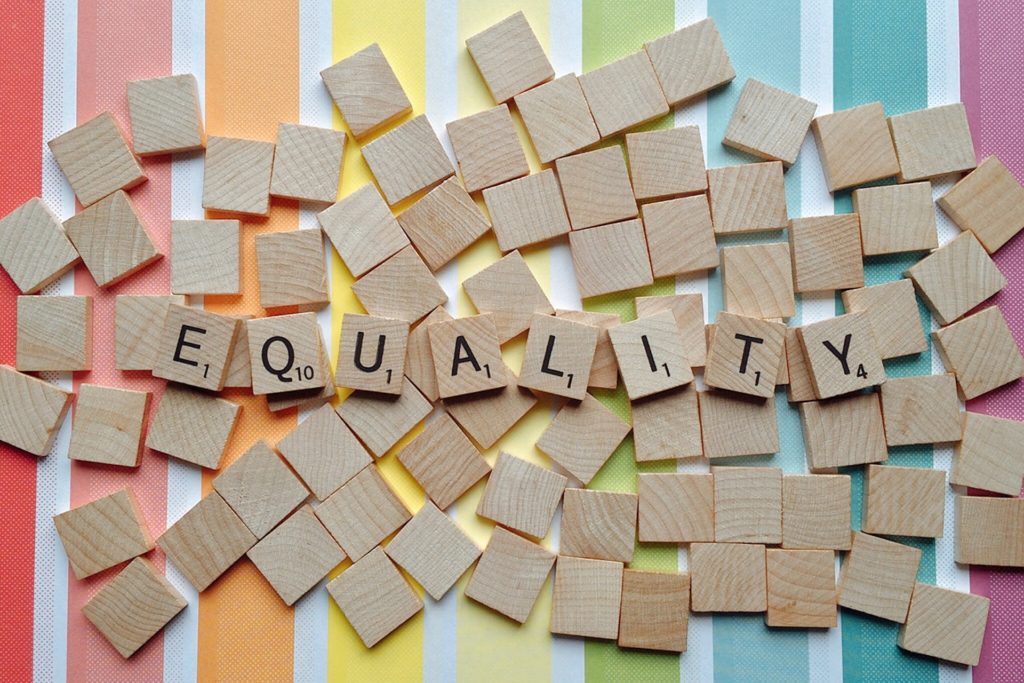In 2015, 193 member countries of the United Nations set 17 goals with 163 targets to create a more prosperous, equitable world by 2030. These Sustainable Development Goals (SDGs) were created not with political leaders and megacorporations in mind, but to unite small- to medium-sized enterprises (SMEs).
Research has shown that women are critical to a stronger, healthier economy and slashing poverty rates. So as we move into a Decade of Action against global injustice, the spotlight turns on to women’s leadership.
Women’s Leadership: Key to Gender Equity
30 million SMEs constitute two-thirds of new net private sector jobs in the United States. The SDGs promise $12 trillion in savings for businesses across the globe, and companies big and small benefit from incorporating socially-conscious practices into their branding strategy and business model. Most of these SMEs are owned by women, whose increased participation in the workplace may add billions to the economy in the next five years.
For as long as the United Nations has set goals for improving quality of life across the globe, the organization has acknowledged that elevating girls and women are essential to achieving their mission, particularly SDG #5: Gender Equality.

As a female-operated organization, Prosper for Purpose incorporates SDGs into every angle of our business. We’ve worked with many organizations owned by and developed for women. Additionally, we ally with organizations such as Women’s Entrepreneurship Day Organization (WEDO) to empower women in the workplace.
In 2013, Wendy Diamond founded WEDO to support more than 200 million girls and women living in poverty worldwide. A non-profit organization dedicated to achieving several SDGs, WEDO not only aspires to educate the world about the essential role women play in the workforce, but also honors women who make incredible contributions to society.
Each year, Prosper for Purpose supports WEDO’s mission by hosting Women’s Entrepreneurship Day (WED) Ohio. Held on Women’s Entrepreneurship Day each year, WED Ohio supports female business owners and aspiring entrepreneurs. WED Ohio recognizes that many women continue to suffer from gender inequity in the workplace and struggle to allocate the tools to advance in their fields. From confectioners to HR consultants, Prosper for Purpose connects participants to trailblazers who overcame daunting obstacles on the journey to success.
Tips to Incorporate SDGs Into Your Company
According to the Harvard Business Review, many companies who undertook at least one SDG failed to meet or exceed their targets in 2019. For the first time in history, the UN has set goals for humanity with the private sector in mind; progress, not perfection, is the goal. Agenda 2030 is nothing short of remarkable, but SMEs must approach SDGs with the same enthusiasm and ambition woven into each module.
SDGs tackle far-reaching problems that may seem daunting and insurmountable to SMEs. But approaching one or more SDGs using an Objectives and Key Results (OKRs) mindset fosters success and smooths out failures. Google is one of a few high profile organizations that thrive by using OKRs. Goals are lofty, pushing staff to move beyond their comfort zone while accepting that not all targets may be reached.
First, define what implementing SDG(s) means for your business, from the risks to the benefits. Next, develop a strategy or a business plan that aims to achieve around 70% of targets for each of your SDG(s). Not only does an OKR mindset sustain employee morale, but it also encourages businesses to think outside the box. The path to hitting 70% should be equally challenging and rewarding. If targets are easily met, leaders might ask themselves if they need to think bigger down the line.
At the organizational level, B Lab developed the SDG Manager tool to help SMEs take practical steps to weaving sustainability into their foundation. The SDG Manager helps leaders strategize ways to meet SDG targets and track their progress. Moreover, SMEs can measure their success against other participating companies. While 17 modules are listed, leaders can select the SDGs that bolster their purpose.
Moving Forward
To actualize Agenda 2030, engaging the private sector is essential — and women’s leadership is at the forefront. For 2020, WED will help women leaders connect on the virtual stage. WEDO’s move to a virtual summit this year not only allows us to extend our reach, but also speaks to an important truth: a successful enterprise innovates in challenging times.

LEAVE A COMMENT
Comments